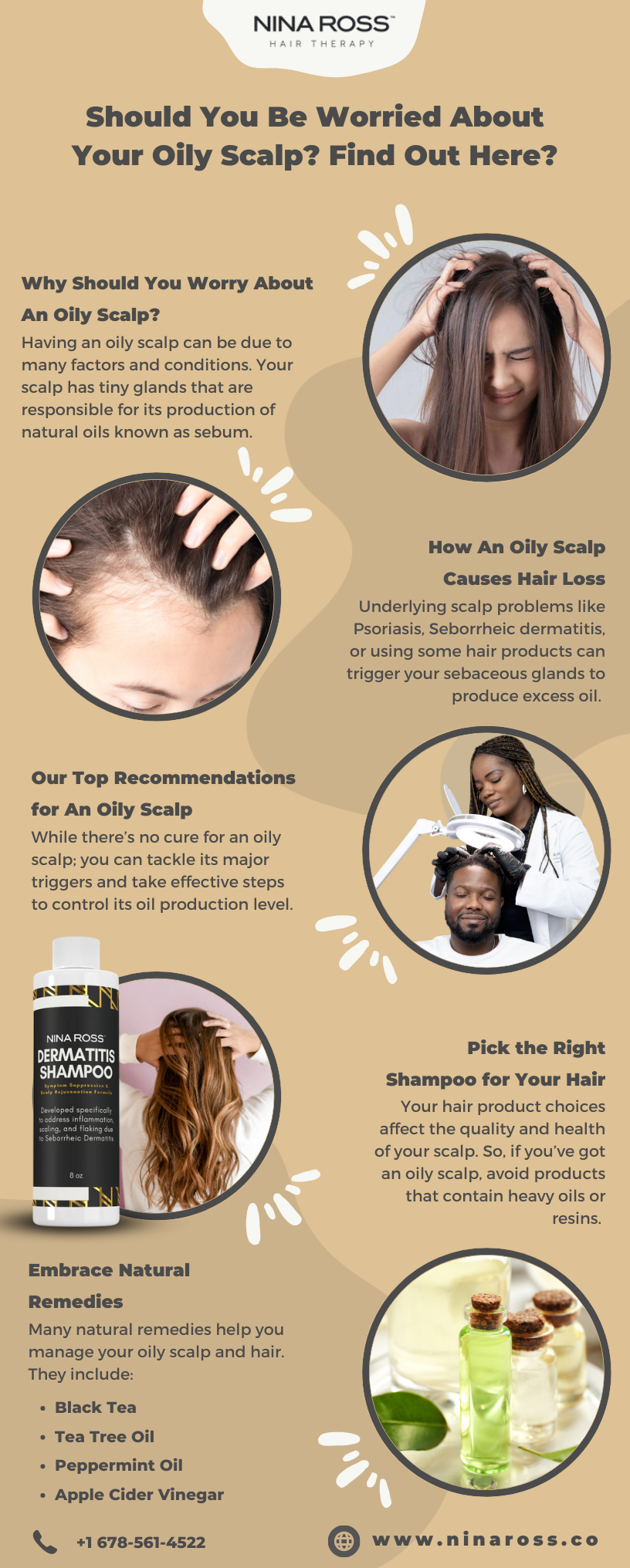That wash day struggle is real. You do the whole routine—shampoo, conditioner, the works—and by day two, your scalp already has that slick feel. You try dry shampoo, but then your scalp feels heavy, almost clogged. It’s a no-win situation.
What most people never tell you? That excess oil does more than ruin your style. It can actually choke your hair follicles. At our Atlanta clinic, we see women every week who never connected their oily scalp to their thinning hair. The fix starts with why your scalp pumps out so much oil to begin with.
Why Your Scalp Won’t Quit with the Oil
Your scalp makes natural oils for a reason. This sebum keeps your scalp supple and your hair shiny. But when those tiny glands work too hard, trouble starts.
That extra oil mixes with dead skin and product residue. It forms a thick paste that:
-
Blocks your hair follicles like a clogged drain
-
Lets yeast and bacteria throw a party on your scalp
-
Sparks inflammation that hurts your follicles over time
-
Can kick off conditions like seborrheic dermatitis
This hits Black women harder. We often go longer between washes to protect our styles. More days mean more buildup, more oil, more chance for inflammation to set in.
The Real Culpits Behind That Oil
Your oily scalp isn’t just bad luck. The root causes we usually find:
-
Your Hormones Act Up: High androgen levels (like DHT) tell your oil glands to work overtime. Many women see more oil with PCOS, perimenopause, or certain birth control.
-
Your Scalp Fights Back: Conditions like folliculitis or dermatitis cause inflammation. Your body then makes more oil to soothe the problem, which makes everything worse.
-
Your Products Cause Problems: Heavy butters and oils that help your ends can hurt your scalp. They trap oil and bacteria close to your skin.
-
Your Body Sends Signals: Sometimes, an oily scalp means something else is off. Gut trouble, blood sugar swings, or missing nutrients can all affect how much oil you make.
How to Decrease the Oil Without Starving Your Scalp
The goal is balance, not strip your scalp bare. That just makes your glands panic and produce more oil. Here’s what truly works:
1. Pick Shampoos That Understand the Assignment
Our Dermatitis Shampoo has been specifically manufactured for this exact problem. It has tea tree oil and salicylic acid to clear follicles without that tight, dry feel. You need a clean scalp that still holds its natural moisture.
2. Look Deeper Than Your Scalp
Our functional medicine tests often find oily scalps link to:
-
Hormone imbalances that need correction
-
Food reactions that drive inflammation
-
Missing nutrients that affect skin health
-
Gut issues that show up on your scalp
3. Treat Your Scalp Smart
Skip the heavy oils on your scalp. Try the tea tree oil mixed with a light carrier oil to clarify, peppermint oil to help manage oil production or use apple cider vinegar rinses to balance your scalp’s pH.
When That Grease Signals a Bigger Problem
Sometimes, that oily feel waves a red flag for conditions that need a pro’s eye. Get help if you notice any yellow, greasy flakes on your scalp, red, angry skin underneath, any burns or intense itch you can’t ignore and more hair loss than usual.
You might have to deal with seborrheic dermatitis, scalp psoriasis or serious folliculitis. These conditions mix inflammation and oil production in a way that can lead to permanent hair loss.
Ready to End the Grease Battle?
If you’re over the constant fight with oil and worry what it does to your hair, let’s find your root cause. Book your Hair Therapy Evaluation with us for just $99 and let us help you determine if your oily scalp is just a nuisance or a sign of something that needs deeper attention.












